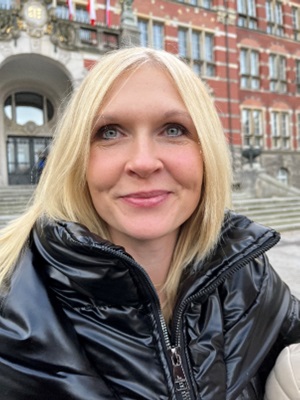
Prof. Justyna PLOTKA-WASYLKA
Gdańsk University of Technology, POLAND
Justyna M. Płotka-Wasylka graduated from the Gdańsk University of Technology with a Ph.D. in Chemical Science in 2014, after which she started work at the Gdańsk University of Technology (Department of Analytical Chemistry). In 2019, she ranked up to Professor at GUT, Poland. She was called as Member of Young Scientists Council of Minister of Science and Higher Education in 2018. Her research interests include the quality determination of wine and characterization of wine origin from different part of Poland. She is also interested in green aspects of chemistry, especially analytical chemistry, thus, her researches are always performed in accordance with principles of green analytical chemistry. In order to assess developed procedures, she developed a tools for assessing analytical protocols relative to green analytical chemistry attributes, called GAPI and ComplexGAPI. She has conducted several Research Projects and has over 100 publications including peer-reviewed papers, book chapters and text books
Trends in the New Generation of Green Solvents in Extraction Processes
Justyna Płotka-Wasylka
Department of Analytical Chemistry, Faculty of Chemistry, Gdańsk University of Chemistry, 11/12 G. Narutowicza Street, 80-233 Gdańsk, Poland
Analytical chemistry, like other fields of the chemistry sciences, has undergone some changes to make it more consistent with the concept of sustainable development. Among the several processes of the analytical procedure, sample preparation is without a doubt the protocol bottleneck. To extract the analytes of interest from the matrix into a medium suitable for injection into analytical instruments, considerable amounts of organic solvents, energy, and laboratory consumables are typically used, which frequently has an impact on the procedure greenness. The primary disadvantages of traditional sample preparation processes were the extensive use of organic solvents and the resulting laboratory waste. As a result, numerous attempts have been made to increase the environmental friendliness of this important stage in any analytical process, encouraging the development of numerous sample preparation approaches, but also introducing novel solvents characterized by less environmental impact. A new generation of green solvents, such as bio-based solvents, supercritical fluids, and liquefied will be discussed with specific examples of applications and future perspectives.


